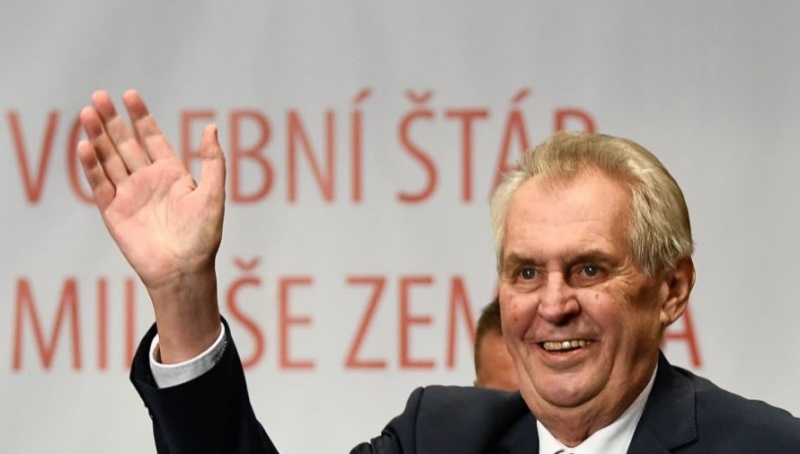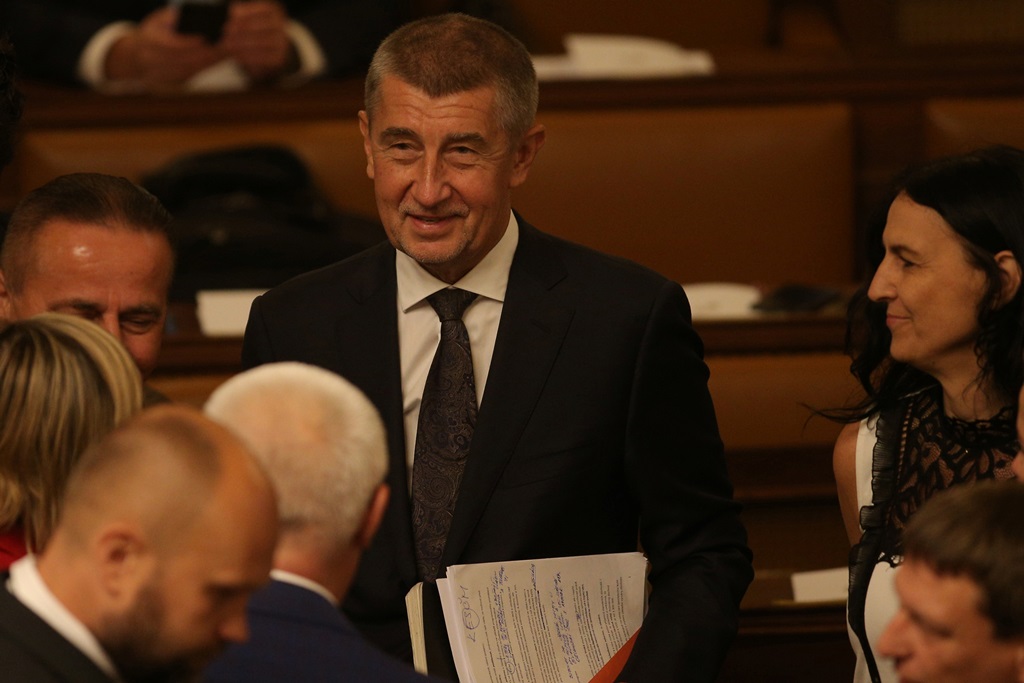The Czech Political Scene after the October Elections

Local Government Elections
Elections to Czech municipal councils (a total of 61,892 councillors, with voter turnout at 47.3%) took place on 5–6 October, along with the first round of elections to the Senate. In the local elections, local committees won 34,965 seats, and non-affiliated candidates took 6,232 seats. Among the political parties, the Christian and Democratic Union–Czechoslovak People’s Party (KDU-ČSL) received the most seats. Although only the seventh faction in the Chamber of Deputies, its extensive regional structures helped it take 3,231 seats on local councils (351 fewer than in previous elections). The main opposition force, the right-wing Civic Democratic Party (ODS), obtained 2,281 seats.
Because of separate voting for parties and individual candidates, ANO will have only 1,676 councillors, even though it won the most votes from among the political parties as a result of successfully converting part of the left-wing electorate. The Babiš group achieved the best result in the 12 capitals of the regions, all except Prague and Liberec. However, the failed attempt to form a majority local government in Brno confirmed the ANO’s limited capacity to establish a coalition, previously seen during attempts to form a government and obtain a vote of confidence in the Chamber of Deputies.
This is another election confirming the weakening of left-wing parties. The Czech Social Democratic Party (ČSSD), having 1,882 seats, and the Communist Party of Bohemia and Moravia (KSČM), winning 1,426 seats, lost about half of their councillors. The extreme right-wing Freedom and Direct Democracy, although the third party in the Chamber of Deputies, won only 155 seats, proving the ineffectiveness of its campaigning at local level. The Czech Pirate Party, despite the small number of seats won (275), confirmed its high coalition capability. This is evidenced by the selection of the Pirate candidate for the office of the mayor of Prague after inter-party negotiations.
Elections to the Senate
The second round of elections for one third of seats in the Senate, which took place on October 12 and 13 (with 16.5% turnout) weakened the government coalition and strengthened the opposition ODS. As in the local elections, the Senate elections brought defeat for the left. ČSSD lost 12 seats and, for the first time since 1993, there will be no communists in this chamber. The ruling ANO gained just one extra seat. The Senate composition (81 seats in total) after the election is ODS (18, including the new President of the Senate Jaroslav Kubera), the grouping of local government representatives Mayors and Independent “STAN” (18), KDU-ČSL (15), ČSSD (13), ANO (7), the “Senator 21” movement (6), and non-affiliated senators (4). Jiří Drahoš, Marek Hilšer and Pavel Fischer, who opposed Miloš Zeman in the February presidential election all have gained seats in the Senate.
The election of 27 senators for a six-year term takes place every two years according to majority regulations. This format aims strengthen the institutional continuity of the Czech parliament and political stability within the country. The upper house rarely reflects the balance of power from the lower house. At present, the composition of the Senate contrasts with the Chamber of Deputies elected in October 2017, in which the largest grouping is ANO. Although the governing parties of ANO and ČSSD do not have a majority there, they are able to make legislative changes regardless of the Senate’s veto thanks to KSČM, which expressed confidence in the current government. However, building a majority in the Senate around the ruling parties is unlikely. As a result, the opposition in the Senate will not be able to block government projects but may prolong the legislative process.
Changes in the Government
The appointment of Tomáš Petříček (ČSSD) as foreign minister on October 16 completes the cabinet of Babiš, sworn in in July. Nominations for the post of foreign minister had earlier been blocked by Zeman, leading to Jan Hamáček, ČSSD chairman and minister of the interior, holding the position temporarily.
Petříček’s main goals include “anchoring the Czech Republic in the EU and NATO” and global issues such as combating climate change and strengthening the “liberal, multilateral world order.” In the context of regional cooperation, he has listed the Bucharest Nine, the Slavkov Triangle, the Three Seas Initiative and the Visegrad Group. The latter format, as Petříček pointed out during his visit to Warsaw on November 8, should propose “practical and positive solutions and reduce divisions in the EU.” Immediately after his nomination he went to Germany, and then to Slovakia (traditionally the first destination for Czech foreign ministers). During his stay in Berlin, he expressed his readiness to prolong the sanctions against Russia, upheld his criticism of the compulsory distribution of asylum-seekers, and raised concerns about Poland’s and Hungary’s departure from liberal democracy.
The task of the new minister will be to exert real influence on foreign policy, so far dominated by Babiš and Zeman. While Babiš acts as the creator of Czech migration policy, which is aimed to secure public support for ANO, Zeman does not hide his ambition to set the general framework of foreign policy. A meeting convened by Zeman in September, attended by the prime minister, the chair of the lower house of parliament and the foreign and defence ministers, where migration, relations with Israel and Russia and other matters were discussed, served these ambitions.
In addition, an increasingly active role is played by Chamber of Deputies chairman Radek Vondráček (ANO), who represented the Czech Republic during the Three Seas Initiative summit in Bucharest. In response to the domestic criticism of his stay in Moscow in October, during which he met Russian officials subject to EU sanctions, the lower house of parliament issued a joint ANO, ČSSD, SPD and KSČM statement confirming the compliance of Vondráček's visit with the “concept of Czech foreign policy.”
Conclusions and Prospects
Elections to municipal councils were also a test of the popularity of the government. They showed further high public support for ANO and disappointment with ČSSD, the junior coalition partner, which in some polls is barely above the electoral threshold. The high number of seats won by the opposition in local governments does not fundamentally change the political balance of power in the Czech Re However, the change of power in Prague and Brno proved that ANO has much less influence at the local level than it does nationally. The result of the elections to the Senate indicates that the upper chamber may become more visible in public debate due to the dominance of the opposition and the presence of popular politicians, including candidates from the last presidential election. The Senate, despite the strengthening of the opposition within it, will be unable to block or change projects submitted by the Chamber of Deputies. However, it may prolong the legislative process and, by forcing own projects, impede reforms of the Babiš government.
It is highly unlikely that with the end of the electoral cycle, the coherence of Czech foreign policy will increase. The newly appointed foreign minister may encounter difficulties given the ambitions of other state players, including the chairman of the Chamber of Deputies. A division of labour in which the prime minister takes on greater responsibility for EU policy while matters such as climate change and development assistance fall more under the remit of the foreign ministry should not be ruled out. Regardless, the Czech Republic’s partners, including Poland, should bear in mind that the declarations and actions of representatives of the government coalition may be more subject to change than they have been in the past.




